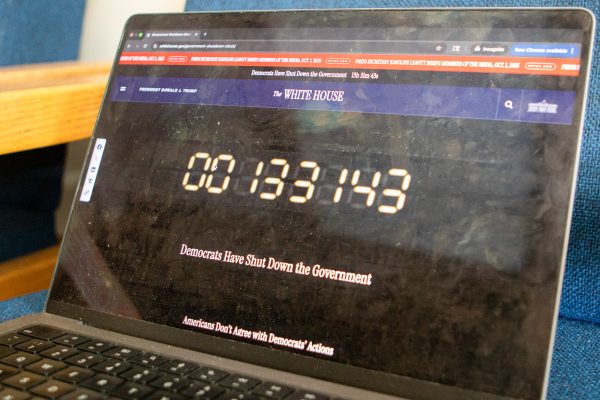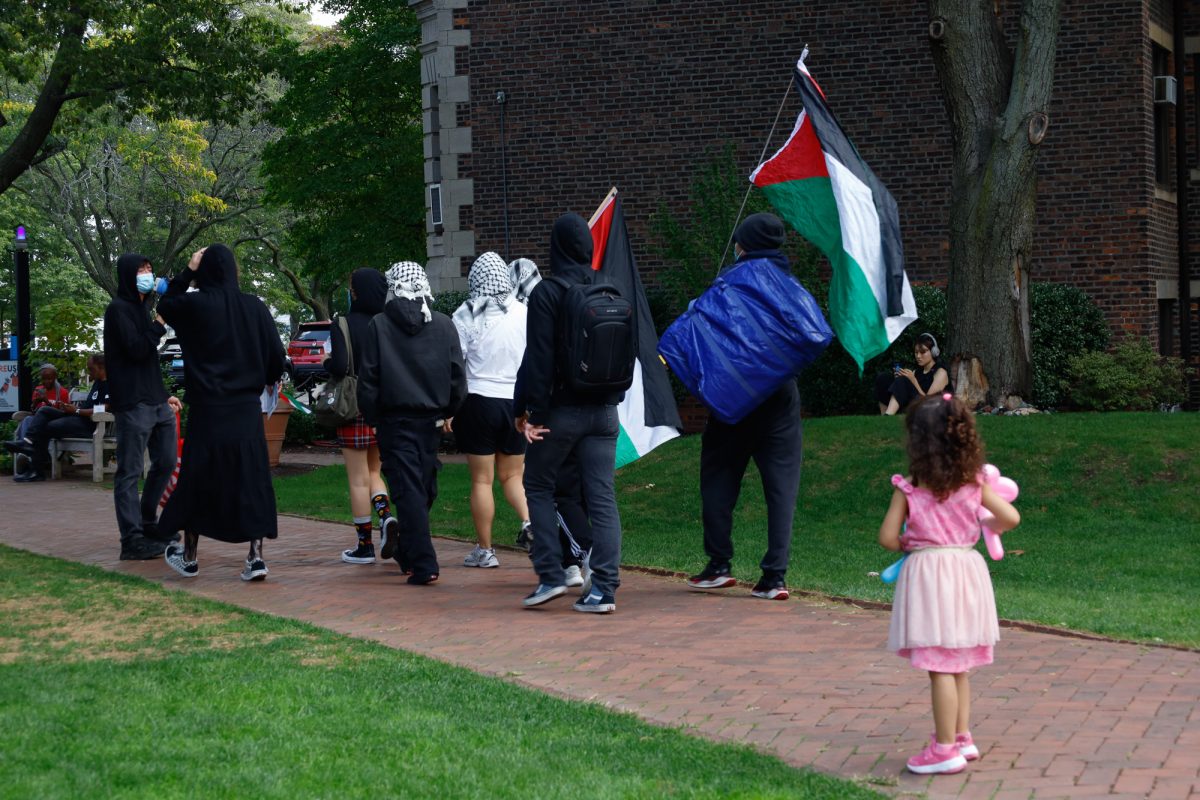The U.S. government shut down Wednesday after Congress failed to pass a spending bill before the end of the fiscal year that would have kept the government funded past Sept. 30.

President Donald Trump’s administration subsequently halted $26 billion in funding for Democratic-leaning states in retaliation, including Massachusetts.
Republicans filed a short-term measure to keep the government operating through Nov. 21, which was countered by Democrats with a bill extending government funding through October that included restoring health care funding and limiting Trump’s power to withhold funding.
Speaker of the House Mike Johnson, R-La., called the Democrats’ health care subsidies “an extraneous matter right now” while speaking outside Capitol Hill with other Republican lawmakers Wednesday morning.
“Those enhanced subsidies are scheduled for sunset or conclude at the end of this calendar year,” said Doug Howgate, president of the Massachusetts Taxpayers Foundation. “If they’re not extended in Massachusetts, tens of thousands of people will lose health care subsidies.”
A government shutdown occurs when the deadline passes for funding of about a dozen appropriations bills, which fund most federal government agencies, and Congress does not authorize more spending.
When this happens, federal operations must halt all non-essential functions.
A government shutdown is “not good for provision of public services around the country,” said Howgate.
This is the fourteenth government shutdown the U.S. has experienced since 1980. The most recent shutdown began in December 2018 and ended in January 2019 — the longest in U.S. history, spanning 34 days.
The shutdown will leave millions of federal employees without pay, including workers from various government agencies, the military, National Guard and Immigration and Customs Enforcement. Federal contractors, airport security officers and air traffic controllers are also left without pay.
A representative from the Massachusetts Port Authority wrote Massport is in “constant communication” with the federal government and did not expect Boston’s Logan International Airport to experience “any immediate interruptions in service at the security checkpoint or elsewhere if there is a shutdown.”
Boston will be affected by the shutdown as well, according to the Greater Boston Food Bank.
“These disruptions will force federally employed residents to turn to their local food pantries, who rely on The Greater Boston Food Bank for the majority of their food, putting a greater demand on an already overburdened food pantry system,” wrote Catherine D’Amato, president and CEO at GBFB, in a statement to the Daily Free Press.
Supplemental Nutrition Assistance Program benefits could be disrupted in November if states miss the deadline for transmitting the necessary files, according to the Food Research and Action Center.
If the shutdown continues for longer than “one to two weeks,” the Special Supplemental Nutrition Program for Women, Infants and Children could run out of funding, according to a statement from the National WIC Association on Tuesday.
“Right now, families should know that SNAP and WIC benefits are being issued normally,” wrote Vicky Negus, senior policy advocate at the Massachusetts Law Reform Institute, in a statement to The Daily Free Press. “If a shutdown continues, the landscape is not certain. Unlike past shutdowns, including the Trump Administration in 2019, USDA has not shared any information with states about what happens next.”














































































































